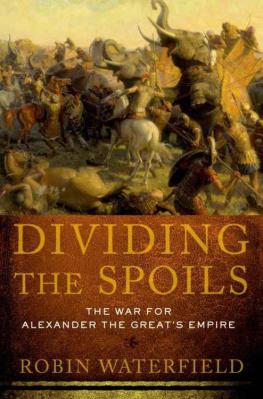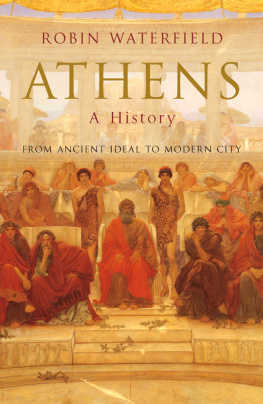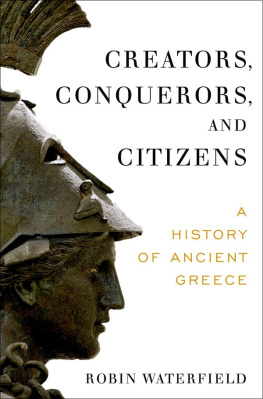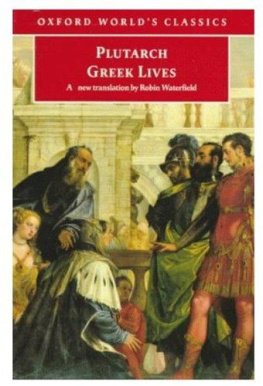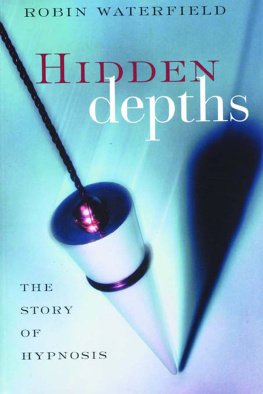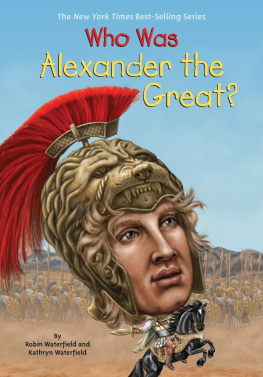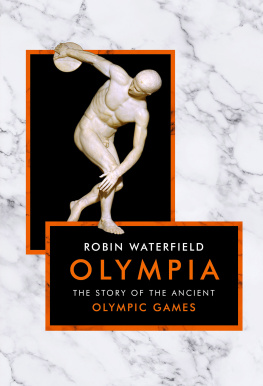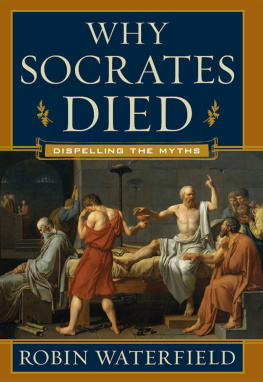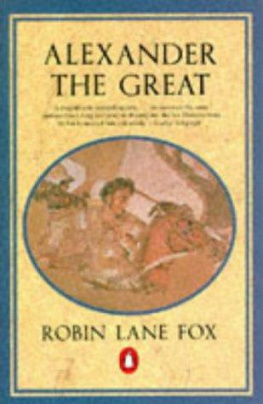Robin Waterfield - Dividing the Spoils: The War for Alexander the Greats Empire (Ancient Warfare and Civilization)
Here you can read online Robin Waterfield - Dividing the Spoils: The War for Alexander the Greats Empire (Ancient Warfare and Civilization) full text of the book (entire story) in english for free. Download pdf and epub, get meaning, cover and reviews about this ebook. year: 2011, publisher: Oxford University Press, USA, genre: Non-fiction. Description of the work, (preface) as well as reviews are available. Best literature library LitArk.com created for fans of good reading and offers a wide selection of genres:
Romance novel
Science fiction
Adventure
Detective
Science
History
Home and family
Prose
Art
Politics
Computer
Non-fiction
Religion
Business
Children
Humor
Choose a favorite category and find really read worthwhile books. Enjoy immersion in the world of imagination, feel the emotions of the characters or learn something new for yourself, make an fascinating discovery.
- Book:Dividing the Spoils: The War for Alexander the Greats Empire (Ancient Warfare and Civilization)
- Author:
- Publisher:Oxford University Press, USA
- Genre:
- Year:2011
- Rating:4 / 5
- Favourites:Add to favourites
- Your mark:
- 80
- 1
- 2
- 3
- 4
- 5
Dividing the Spoils: The War for Alexander the Greats Empire (Ancient Warfare and Civilization): summary, description and annotation
We offer to read an annotation, description, summary or preface (depends on what the author of the book "Dividing the Spoils: The War for Alexander the Greats Empire (Ancient Warfare and Civilization)" wrote himself). If you haven't found the necessary information about the book — write in the comments, we will try to find it.
Robin Waterfield: author's other books
Who wrote Dividing the Spoils: The War for Alexander the Greats Empire (Ancient Warfare and Civilization)? Find out the surname, the name of the author of the book and a list of all author's works by series.
Dividing the Spoils: The War for Alexander the Greats Empire (Ancient Warfare and Civilization) — read online for free the complete book (whole text) full work
Below is the text of the book, divided by pages. System saving the place of the last page read, allows you to conveniently read the book "Dividing the Spoils: The War for Alexander the Greats Empire (Ancient Warfare and Civilization)" online for free, without having to search again every time where you left off. Put a bookmark, and you can go to the page where you finished reading at any time.
Font size:
Interval:
Bookmark:
DIVIDING THE SPOILS
Ancient Warfare and Civilization
SERIES EDITORS:
RICHARD ALSTON ROBIN WATERFIELD
In this series, leading historians offer compelling new narratives of the armed conflicts that shaped and reshaped the classical world, from the wars of Archaic Greece to the fall of the Roman Empire and Arab conquests.
Dividing the Spoils: The War for Alexander the Greats Empire
Robin Waterfield
ROBIN WATERFIELD
The War for Alexander
the Greats Empire


Oxford University Press, Inc., publishes works that further
Oxford Universitys objective of excellence
in research, scholarship, and education.
Oxford New York
Auckland Cape Town Dar es Salaam Hong Kong Karachi
Kuala Lumpur Madrid Melbourne Mexico City Nairobi
New Delhi Shanghai Taipei Toronto
With offices in
Argentina Austria Brazil Chile Czech Republic France Greece
Guatemala Hungary Italy Japan Poland Portugal Singapore
South Korea Switzerland Thailand Turkey Ukraine Vietnam
Copyright 2011 by Oxford University Press, Inc.
Published by Oxford University Press, Inc.
198 Madison Avenue, New York, New York 10016
www.oup.com
Oxford is a registered trademark of Oxford University Press
All rights reserved. No part of this publication may be reproduced,
stored in a retrieval system, or transmitted, in any form or by any means,
electronic, mechanical, photocopying, recording, or otherwise,
without the prior permission of Oxford University Press.
Library of Congress Cataloging-in-Publication Data
Waterfield, Robin, 1952
Dividing the spoils : the war for Alexander the Greats empire/Robin Waterfield.
p. cm. (Ancient warfare and civilization)
Includes bibliographical references and index.
ISBN 978-0-19-539523-5
1. GreeceHistoryMacedonian Hegemony, 323281 B.C. 2. MacedoniaHistoryDiadochi,
323276 B.C. 3. GeneralsGreeceBiography. 4. GeneralsMacedoniaBiography. 5. Greece
Kings and rulersBiography. 6. MacedoniaKings and rulersBiography. 7. Mediterranean Region
History, Military. 8. Mediterranean RegionHistoryTo 476. I. Title.
DF235.4.W38 2011
938.070922dc22 2010030834
1 3 5 7 9 8 6 4 2
Printed in the United States of America
on acid-free paper
FOR MY FATHER
AND IN MEMORY OF MY MOTHER
This book tells the story of one of the great forgotten wars of history. It took more or less forty years after the death of Alexander the Great for his heirs (the Diadokhoi, the Successors) to finish carving up his vast empire. These years, 323281 BCE, were filled with high adventure, intrigue, passion, assassinations, dynastic marriages, treachery, shifting alliances, and mass slaughter on battlefield after battlefield. And while the men fought on the field, the women schemed from their palaces, pavilions, and prisons; this was the first period of western history when privileged women, especially from the royal families, began to play the kind of major political roles they would continue to play throughout the future history of Roman, Byzantine, and European monarchies.
My period has a natural starting pointthe death of Alexander in June 323and an equally natural end. The year 281 saw the violent deaths of the last two direct Successors of Alexander, those who had known and ridden with him. The next generationthe Epigonoi, as Nymphis, a historian of the second century BCE, called them in a lost workmay have been just as ambitious as their fathers, but the world had changed. It was no longer realistic to aim for dominion of the whole of Alexanders empire; instead, their first aim was to hold on to their core territoriesMacedon for the Antigonids, Asia for the Seleucids, and Greater Egypt for the Ptolemies. Of course, they and their descendants would regularly attempt to take over some of a neighbors territory, but no individual any longer realistically aspired to rule the whole known world. There would never again be a time like the time of the Successors, forty years of almost unremitting warfare aimed at worldwide domination.
In their day, the Successors were household names, because they held the fate of the world in their hands. If their fame has become dimmed over the centuries, that is a result of historical accident (the loss of almost all our sources for the period) and of our perennial obsession with Alexander the Great, in whose shadow they have been made to stand. My main purpose in this book has been to revive the memory of the Successors. A narrative account is enough on its own to demonstrate that the early Hellenistic period was not an anticlimax after the conquests of Alexander, and certainly not a period of decline and disintegration. In fact, Alexander had left things in a mess, with no guaranteed succession, no administration in place suitable for such an enormous empire, and huge untamed areas both bordering and within his empire. A detailed and realistic map of Alexanders conquests would show him cutting a narrow swath across Asia and back, leaving much relatively untouched. So far from disintegration, then, the Successors consolidated the Conquerors gains. Their equal ambitions, however, meant that consolidation inevitably led to the breakup of the empire and the foundation of lesser empires and kingdoms.
Military narrative features prominently in the book, but has been broken up by asides on cultural matters. For, astonishingly, this period of savage warfare was also characterized by brilliant cultural developments, especially in the fields of art, literature, and philosophy. The energy released by world conquest was not all absorbed on battle-fields, and the culture the Successors brought in their train flourished, thanks especially to royal patronage. Although they were warlords, the Successors were not uncultured. Alexander himself was said to have slept with a copy of Homers Iliad under his pillowalong with a knife. Without the consolidation the Successors brought to Alexanders gains, the spread of culture would have been impossible; there is no civilization without structure.
So as well as an account of the military action, this book also contains an outline of its cultural impact. A new world emerged from the dust and haze of battlea world with distinct territories each ruled by its own king, but with a common culture. That common culture is what entitles us to speak generally of the Greek east, distinct from the Roman west, and it was the Successors, therefore, who set up the world-changing confrontation between these two power blocs. The result, of course, was Roman dominion over the entire Greek world. The takeover culminated in 30 BCE with the annexation of Egypt, and this date is generally taken to mark the end of what scholars call the Hellenistic periodthe period, starting with the death of Alexander, when the Greek culture that the Successors fostered came to dominate the world from the Mediterranean to Afghanistan.
My main intention has been to write an accurate and enjoyable bookto make sense of a very difficult period of history. The over-arching story is implied by my title and subtitle. The spoils were divided. We see the emergence, out of Alexanders single empire, of a multistate political order and of a developing balance of power. At one time or another, all the Successors tried to emulate their dead leader and conquer the entirety of the empire, but none of them succeeded. We witness what realist historians would describe as a law of history: contiguous powers with imperialist ambitions are bound to clash and so limit those ambitions. At the beginning of our forty-year period, grand imperialism was a possibility, but not at the end. The action of this law is the thread that runs through the book.
Next pageFont size:
Interval:
Bookmark:
Similar books «Dividing the Spoils: The War for Alexander the Greats Empire (Ancient Warfare and Civilization)»
Look at similar books to Dividing the Spoils: The War for Alexander the Greats Empire (Ancient Warfare and Civilization). We have selected literature similar in name and meaning in the hope of providing readers with more options to find new, interesting, not yet read works.
Discussion, reviews of the book Dividing the Spoils: The War for Alexander the Greats Empire (Ancient Warfare and Civilization) and just readers' own opinions. Leave your comments, write what you think about the work, its meaning or the main characters. Specify what exactly you liked and what you didn't like, and why you think so.

